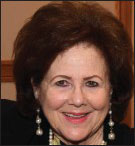Director's Welcome
 The Sam Azeez Museum of Woodbine Heritage represents one hundred and twenty-five years
of unique Jewish history. That history began with the arrival of Russian Jewish settlers
in August 1891 as a result of the philanthropy of German Jewish industrialist Baron
Maurice DeHirsch. Woodbine was begun as an agricultural experiment, to allow the Russian
Jewish immigrants to become "of the land."
The Sam Azeez Museum of Woodbine Heritage represents one hundred and twenty-five years
of unique Jewish history. That history began with the arrival of Russian Jewish settlers
in August 1891 as a result of the philanthropy of German Jewish industrialist Baron
Maurice DeHirsch. Woodbine was begun as an agricultural experiment, to allow the Russian
Jewish immigrants to become "of the land."
Located in northwest Cape May County, the museum is housed in the former Brotherhood Synagogue, which was built in 1893 and consecrated as an Orthodox shul in 1896. More than a century later, bar and bat mitzvahs are still celebrated and special Shabbat and High Holiday services continue to be held in the sanctuary of the restored synagogue. The museum is a living memorial to those who came to a new land and created their own Jewish-American story.
Each time we meet a descendant of an original Woodbine family, we are transported back in time: We recall a bygone era when Jews were surprisingly able to live openly and in harmony with the immigrants from other cultural and religious backgrounds who began moving into the area.
That is the genesis of the phrase "Woodbine Heritage." We are not simply a museum of Jewish history. The Baron DeHirsch Agricultural School provided employment opportunities for teachers, most of whom were not Jewish. The first factory was established in Woodbine in 1898. Other ethnic groups moved into Woodbine for employment opportunities. Still predominately a Jewish town, Woodbine ultimately became a multi-cultural community where tolerance prevailed. The museum aspires to reflect and celebrate the full range of cultural life in Woodbine.
The museum became an extension of Stockton University in 2011. A new instructional site was constructed on museum grounds to accommodate undergraduate and graduate credit courses. The addition, named Anne Azeez Hall, represents Stockton University’s footprint in Cape May County.
In 2005, shortly after I began as the museum’s executive director, the New Jersey Commission on Holocaust and Genocide Education named us the designated teaching site for Cape May County. As a lay person long committed to Holocaust education, and as a founding member of the original executive committee of the Holocaust Resource Center at Stockton, I have developed deep personal relationships with our local survivor community. As a result, our site has been fortunate to coordinate Holocaust Education programs which have brought individual survivors face to face with more than 18,000 students over the past twelve years.
The Museum is a frequent choice for class field trips. After giving students a local history lesson, we bring them into the sanctuary. I often wish that our rabbis could hear these predominately non-Jewish students exclaim their surprise when they see the Ten Commandments inscribed on the bima.
I open the ark and explain what the Torah is and what is written on the scrolls. I also remove our small Holocaust Torah and hold it up so that they can see it as I tell them how it was rescued after the Holocaust in Europe.
I am inspired by the hundreds of thank you cards we receive from student groups. Here are a few examples:
Dear Mrs. Stark, Thank you for teaching us so much history about Woodbine, synagogues and the Jewish people. I learned so much.
Dear Mrs. Stark, Thank you for telling us the history of the synagogue and showing us the scrolls. My favorite part was going upstairs to see the synagogue. Let the scrolls show you the way.
Dear Ms. Stark, Thank you for showing us the synagogue and telling us the history about it. I really liked the style of the synagogue.
How do I love my job? Let me count the ways. Every day is a new beginning, and as I like to say, we are making a difference one day at a time, one step at a time. Museum admission is free.
For more information about the Azeez Museum, contact Jane Stark at (609) 626-3831 or jane.stark@stockton.edu.


